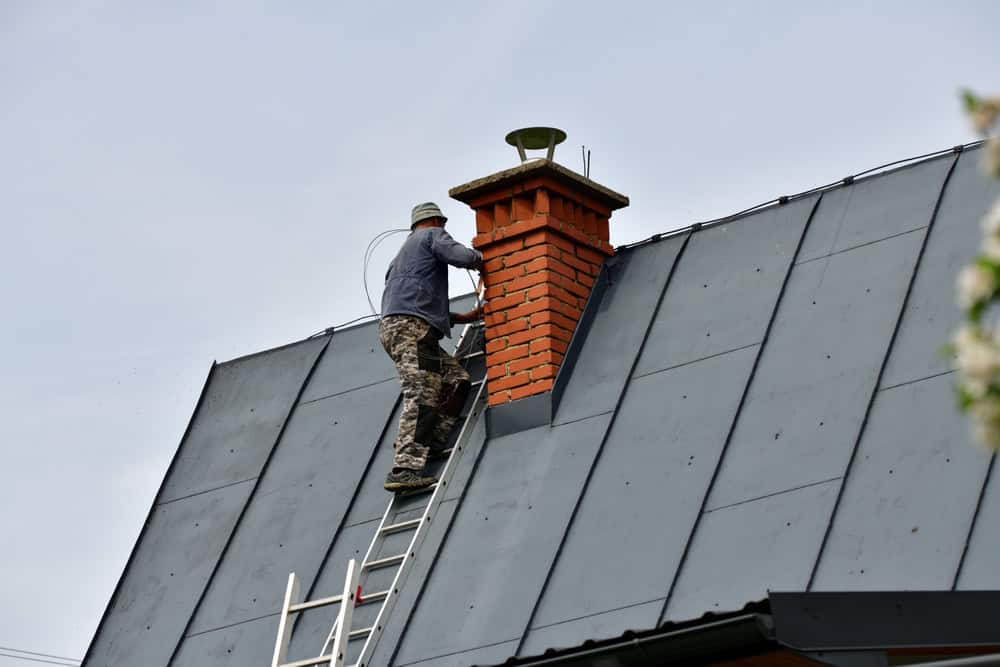Protect your home with expert stainless steel chimney liner installation from Washington County’s most experienced team.

Hear from Our Customers

When your chimney liner installation is done right, you stop worrying about carbon monoxide leaks, chimney fires, and expensive water damage. Your fireplace draws properly without filling your home with smoke. The stainless steel liner channels dangerous gases safely outside while protecting your chimney’s masonry from acidic flue gases that cause costly deterioration.
You get consistent heating performance all winter long. No more draft problems that waste energy or create uncomfortable cold spots in your home. The properly sized liner improves your fireplace’s efficiency, which means you use less fuel and get more heat from every fire you build.
Most importantly, you sleep better knowing your family is protected. A professional chimney liner installation eliminates the hidden dangers that come with cracked clay tiles or unlined chimneys – problems that let deadly gases seep into your living space without warning.
We’ve been installing chimney liners in Washington County since 2000. The same experienced team that started this work over twenty years ago still handles your installation today. We know how Rhode Island’s coastal climate affects chimney systems – the salt air, moisture, and freeze-thaw cycles that can quickly turn small problems into major safety hazards.
Our technicians hold CSI certification from the Chimney Safety Institute of America. That means we follow the industry’s highest standards for safety and installation quality. We’ve seen every type of chimney problem that Washington County’s unique conditions can create, and we know exactly how to address them with materials and techniques that last.
Unlike companies that just do inspections or basic cleaning, we’re a full-service chimney company with our own retail stove store. When we install your liner, we can handle any related repairs or upgrades right away instead of referring you to someone else.

Every chimney liner installation starts with a thorough inspection using specialized cameras to assess your flue’s condition, measure dimensions, and identify any damage that needs repair before the liner goes in. We explain exactly what we find and discuss your options – no surprises, no pressure to add services you don’t need.
Next comes preparation and installation. We clean your chimney thoroughly, then carefully lower the appropriately sized stainless steel liner down the flue. The liner gets properly connected to your appliance and secured at the top with professional-grade components including the cap and flashing. Everything is sized specifically for your chimney’s dimensions and your heating appliance’s requirements.
Final inspection confirms the liner is correctly positioned, sealed, and venting properly. We test the draft to ensure optimal performance and clean up the work area completely. Most standard chimney liner installations in Washington County are completed within a single day, though complex situations might require additional time for proper preparation or related repairs.

Ready to get started?
Your chimney liner installation includes high-quality 316Ti stainless steel materials specifically chosen for their resistance to heat and corrosion. This isn’t the cheaper grade steel that some contractors use – it’s marine-grade stainless that handles Washington County’s coastal environment without rusting or deteriorating. You won’t need replacement in a few years like you would with inferior materials.
The installation includes precise measurements to ensure a perfect fit for your specific chimney dimensions and heating appliance. Generic liners often leave gaps that defeat the entire purpose. Professional installation means proper connections at both ends – sealed tight at the appliance and secured correctly at the chimney top with appropriate caps and flashing.
Washington County homeowners particularly benefit from our local expertise. We understand how the salt air from Narragansett Bay accelerates deterioration of masonry materials. We know which sealants and connection methods hold up to Rhode Island’s weather patterns. The materials and techniques we use are specifically selected for conditions you’ll actually face, not generic solutions that might work elsewhere but fail here.
